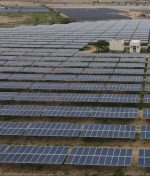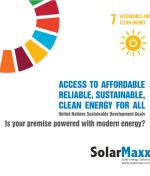
Calculating your Solar Power System’s ROI
Calculating your Solar Power System’s Return on Investment
How much does your business save over the 25 to 30 year lifetime of a typical commercial solar system depends on several factors, including how you choose to finance it, available subsidies from the state and MNRE, your electricity rate, and the amount of sunshine available at the desired solar project site like the rooftop or the ground.
To help commercial, industrial and institutional users evaluate the financial benefits of installing a solar power system our executives at SolarMaxx can offer a free site evaluation and a detailed financial report. Ofcourse some of the variables will change depending on your choice of financing.
Solar panel systems actually function as investments with a strong rate of return. Increased electricity prices and lower equipment costs are making it easier and less expensive to own a solar pv system. Comparing the payback period of various quotes from solar installers is an easy way to comprehend the financial merits of each option, and identify the point in time at which your solar investment will start to earn you money. Thereby making your choice of the right solar vendor easier along with a proper evaluation of quality measures.
A payback period is the amount of time it takes for your upfront solar investment to pay for itself through solar energy savings. A ROI (Return on investment) gives an idea of how much money one can save over the entire lifetime (typically 25 to 30 years) of a solar project. While ROI calculates the financial benefits and the costs of going solar, NPV also takes into account the future value of money being saved. And at last the IRR (Internal Rate of Return) reveals the rate of return from NPV (Net Present Value) cash flows received from a solar investment.
One of the keys to developing successful solar projects is to understand how to measure its value. The best ways to calculate the same are IRR and NPV because they cover the opportunity cost, inflation and risk factors too. If the NPV of a projects turns out to be negative then such a business may not opt for it at that time and wait for the right occasion. To get specific information for your potential solar project simply click here and write to us.




